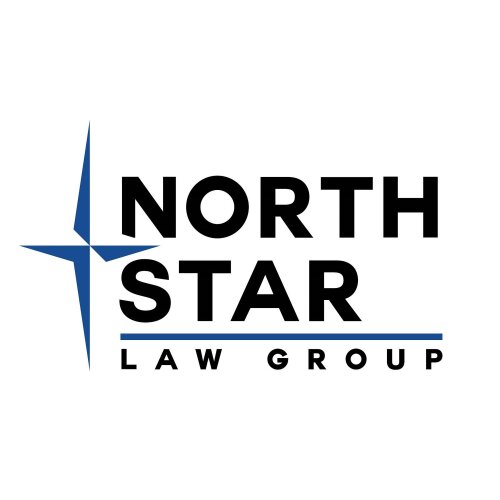Best Class Action Lawyers in Anchorage
Share your needs with us, get contacted by law firms.
Free. Takes 2 min.
List of the best lawyers in Anchorage, United States
About Class Action Law in Anchorage, United States:
Class action law in Anchorage, United States allows a group of people with similar legal claims to collectively bring a lawsuit against the same defendant. This is commonly used in cases where individual claims may be too small to justify individual lawsuits, but collectively, they represent a significant legal issue.
Why You May Need a Lawyer:
You may require a lawyer in a class action lawsuit if you believe you have been harmed by a company or individual in a similar way to others. A lawyer can help you navigate the complexities of the legal system, gather evidence, and ensure your rights are protected throughout the process.
Local Laws Overview:
In Anchorage, United States, class action lawsuits are governed by both federal and state laws. It is important to understand the specific requirements and procedures for filing a class action lawsuit in Alaska to ensure your case is successful.
Frequently Asked Questions:
1. What is a class action lawsuit?
A class action lawsuit is a legal action brought by a group of people with similar claims against a defendant. The outcome of the lawsuit will apply to all members of the class, not just the individuals who initiated the lawsuit.
2. How do I know if I qualify to be part of a class action lawsuit?
To qualify as a member of a class action lawsuit, you must meet certain criteria set by the court, such as having suffered similar harm as other members of the class and being able to be identified as a member of the class.
3. What are the benefits of a class action lawsuit?
Class action lawsuits allow individuals with limited resources to pursue legal action against companies or individuals who may have caused them harm. It also provides efficiency by consolidating similar claims into one lawsuit.
4. How do I find a lawyer for a class action lawsuit?
You can find a lawyer for a class action lawsuit by seeking referrals from trusted sources, researching legal directories, or contacting legal organizations that specialize in class action lawsuits.
5. What is the statute of limitations for filing a class action lawsuit?
The statute of limitations for filing a class action lawsuit varies depending on the nature of the claim and the laws of the state where the lawsuit is filed. It is important to consult with a lawyer to determine the applicable time limits for your case.
6. How are attorneys compensated in class action lawsuits?
Attorneys in class action lawsuits are typically compensated on a contingency basis, which means they only receive payment if the lawsuit is successful. The court may also approve attorney fees to be paid from the settlement or judgment obtained in the case.
7. Can I opt out of a class action lawsuit?
In some cases, you may have the option to opt out of a class action lawsuit and pursue your own individual claim against the defendant. This decision should be carefully considered with the guidance of a lawyer.
8. What happens if the class action lawsuit is successful?
If the class action lawsuit is successful, the court may award damages to the members of the class based on the harm they suffered. The defendant may also be required to change their practices to prevent similar harm in the future.
9. What happens if the class action lawsuit is unsuccessful?
If the class action lawsuit is unsuccessful, members of the class may not receive any compensation for their claims. It is important to discuss the potential outcomes of the lawsuit with your lawyer before proceeding with the case.
10. How long does a class action lawsuit typically take to resolve?
Class action lawsuits can vary in length depending on the complexity of the case, the number of parties involved, and the court's schedule. Some class action lawsuits may be resolved in a matter of months, while others may take several years to reach a conclusion.
Additional Resources:
For more information on class action law in Anchorage, United States, you can contact the Alaska Bar Association or the Alaska Court System. Additionally, legal organizations such as the American Bar Association may provide resources and guidance on class action lawsuits.
Next Steps:
If you believe you have a potential class action claim and need legal assistance, it is important to consult with a qualified attorney who specializes in class action law. They can help assess your case, determine if a class action lawsuit is appropriate, and guide you through the legal process. Taking prompt action and seeking expert legal advice can help protect your rights and improve your chances of a successful outcome in a class action lawsuit.
Lawzana helps you find the best lawyers and law firms in Anchorage through a curated and pre-screened list of qualified legal professionals. Our platform offers rankings and detailed profiles of attorneys and law firms, allowing you to compare based on practice areas, including Class Action, experience, and client feedback.
Each profile includes a description of the firm's areas of practice, client reviews, team members and partners, year of establishment, spoken languages, office locations, contact information, social media presence, and any published articles or resources. Most firms on our platform speak English and are experienced in both local and international legal matters.
Get a quote from top-rated law firms in Anchorage, United States — quickly, securely, and without unnecessary hassle.
Disclaimer:
The information provided on this page is for general informational purposes only and does not constitute legal advice. While we strive to ensure the accuracy and relevance of the content, legal information may change over time, and interpretations of the law can vary. You should always consult with a qualified legal professional for advice specific to your situation.
We disclaim all liability for actions taken or not taken based on the content of this page. If you believe any information is incorrect or outdated, please contact us, and we will review and update it where appropriate.















